One place that has been on my bucket list for a long time is Hawaii and I really hope to be able to travel there very soon. Go surfing, explore dream beaches and smell exotic flowers: For me, Hawaii is an absolute dream destination not only because of the breathtaking beaches and the beautiful landscape, but also because the 7 spiritual principles of the Huna teachings have their origins in the Hawaiian Islands. In this article I will tell you what these 7 spiritual principles are all about and why they are an integral part my spiritual practice became.
- What is Huna?
- Huna: The 7 Spiritual Hawaiian Principles
- Kino Mana – Hawaiian Bodywork
- Huna - The 7 Spiritual Principles
- 1. Makia: Your energy follows your attention
- 2. Mana: Power comes from within
- 3. Manawa: Now is the moment of power
- 4. Aloha: Be love!
- 5. Pono: Living the truth, even in uncomfortable situations
- 6. Ike: Awareness of your consciousness
- 7. Kala: Boundlessness & Freedom
What is Huna?
The origins of Huna go back to a 5000-year-old shamanic teaching that originated and spread mainly in Hawaii but also in other Polynesian states. Loosely translated, Huna means "secret knowledge" that deals with the divinity of man. At that time, the so-called Kahunas had this secret knowledge. Polynesian priests and initiates who were said to have special clairvoyant abilities and powers were called kahunas.
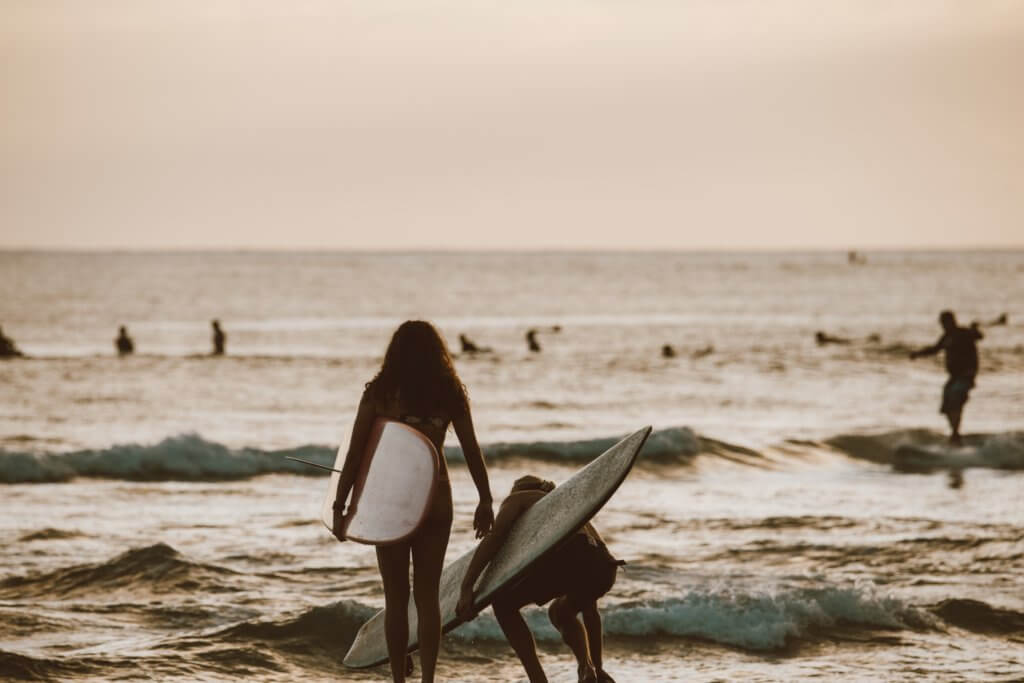
However, the term Huna was first introduced by the American linguist Max Freedom Long and he interpreted a new theory from it. Because the original knowledge is still secret for the uninitiated today.
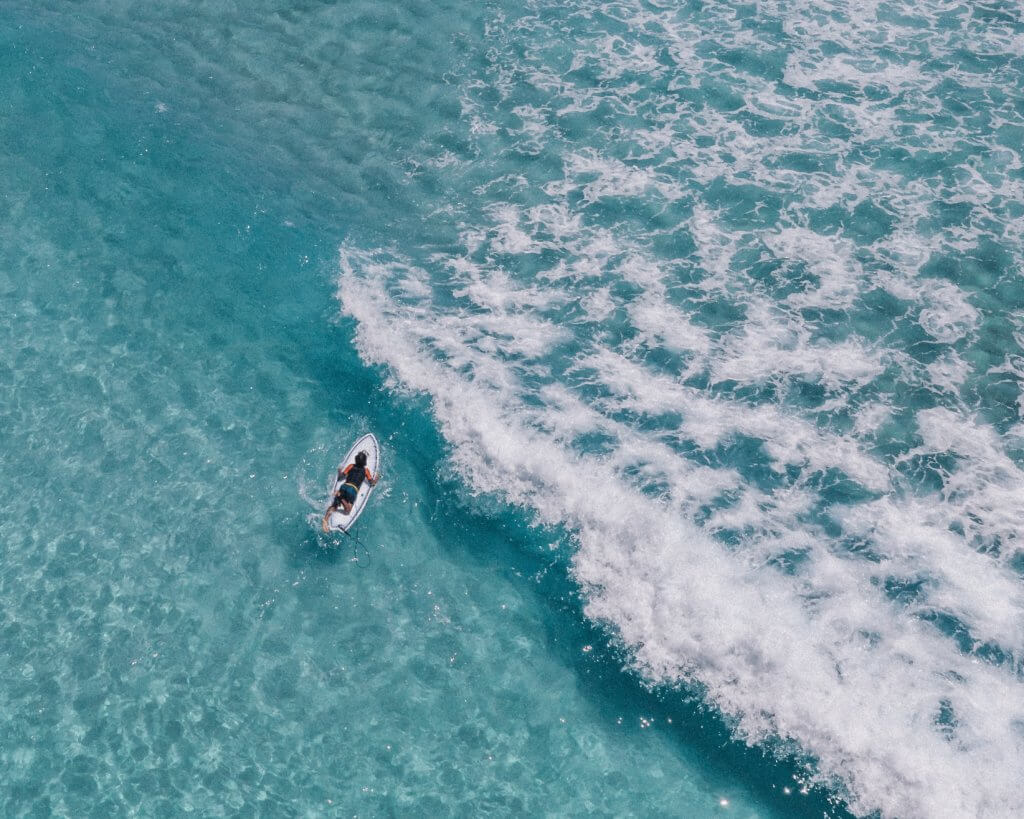
Huna: The 7 Spiritual Hawaiian Principles
Huna is therefore not considered authentic Hawaiian thought by many Hawaiians. Nevertheless, the Huna teachings of Max Freedom Long were very well received. The teaching combines philosophical, spiritual, esoteric and psychological knowledge. At the center of this unique wisdom system is the subtle human consciousness system. It is said that this connection enables people to perceive their inner light.
Kino Mana – Hawaiian Bodywork
The special massage technique and body work “Kino Mana” also emerged from Huna. Kino Mana originally means “movement of life energy”. According to Hawaiian tradition, the deeper the relaxation, the easier it is for healing changes to occur. Tension, on the other hand, is seen as the cause of illness.
Huna - The 7 Spiritual Principles
The seven Huna principles were first developed by Max Freedom Long in the early 20th century and derived from the Hawaiian language. As already mentioned, they are not directly descended from the Kahuna doctrine. Nevertheless, these spiritual principles have influenced and inspired many people. So too me! The principles do not rewrite the world, but I always like to reflect on them in my own everyday life. And maybe you even recognize similarities with your personal, already lived spiritual principles.
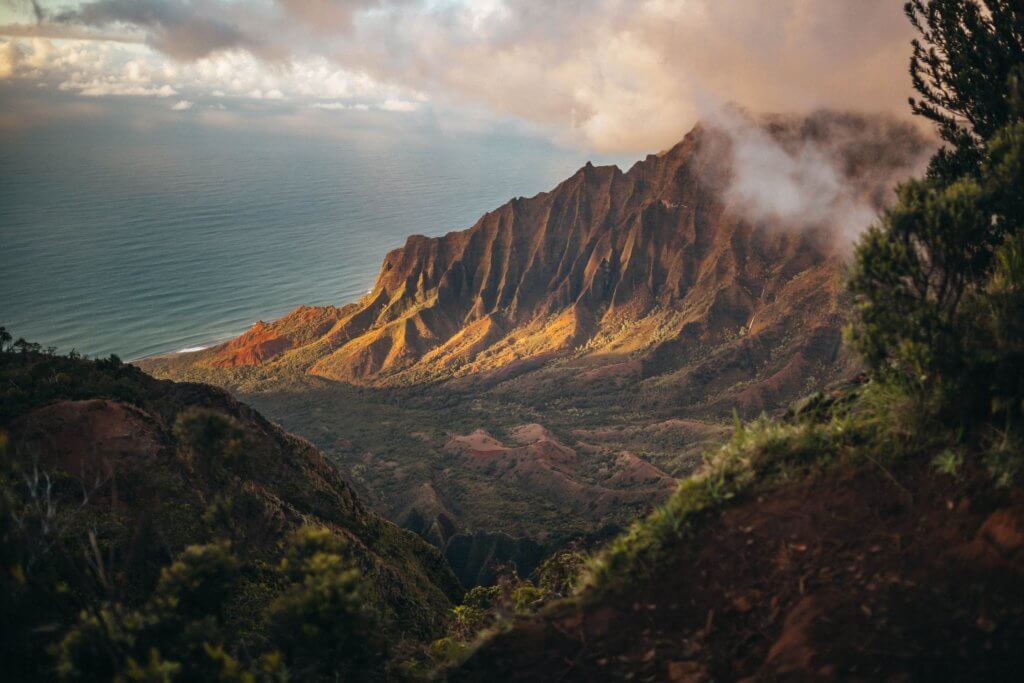
1. Makia: Your energy follows your attention
When we ride a bike, we learn to look straight ahead. Because what happens when we look down? Exactly, it's easier for us to lose our way. It's the same with surfing. If you look down at your feet on the surfboard instead of looking where you want to surf, you will quickly lose your balance.
The more focused we focus our attention on something, the more energy flows there. You take control of your own life. And you should always look where you want to go! We can only achieve our goals and dreams if we always have them firmly in mind. If you want to achieve something in your life, then put your attention there! However, this process requires inner discipline. In order not to lose sight of your goals, it is important to focus on them. You can meditate daily or create your own affirmations that help you direct your attention to where you want it to be.
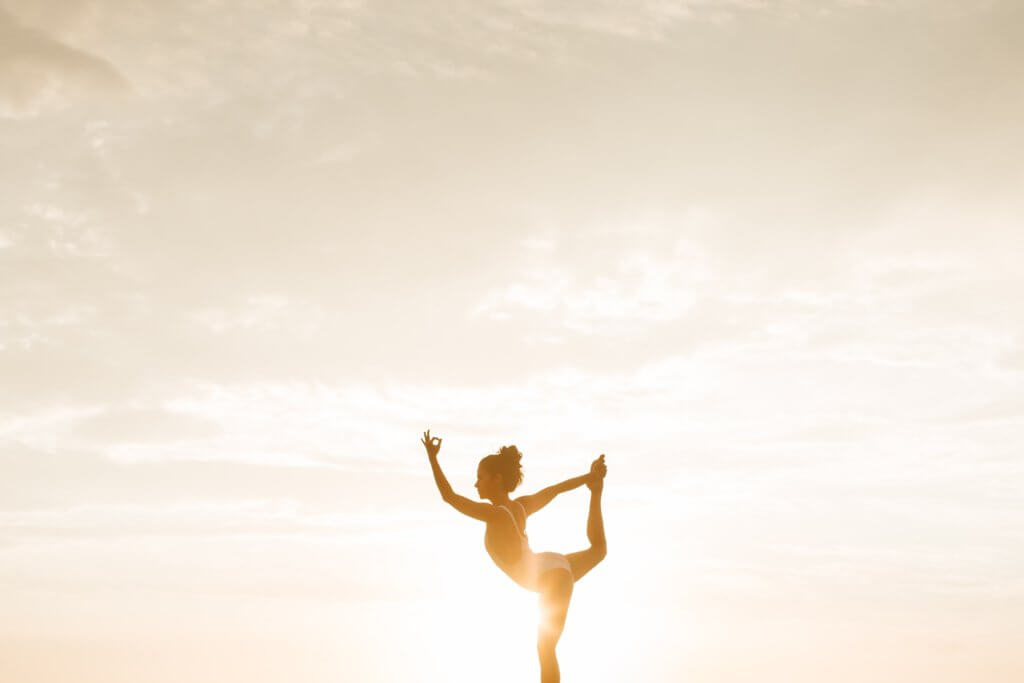
2. Mana: Power comes from within
The power of yourself
Mana describes life energy, creativity, and the power that comes from each individual. It reminds you to harness and use your power. You must not deny your own power, it is important to lovingly acknowledge it, not to be afraid of it and to integrate it confidently into your everyday life. Because in this way you stop denying your own power, which can influentially run through your life. Start living your mana again! Allow yourself to become the queen or king of your own life! You can ask yourself whether you already live your mana or whether you still deny it. You may even try to give your mana to other people.
In which areas of your life do you not yet trust your own power? And why? Once you live your mana, you can achieve your goals and dreams without submitting to external circumstances or using them as an excuse. With Mana, YOU take responsibility for shaping your own life. Only you define which force outside can determine about you and how much space you want to give other forces.
3. Manawa: Now is the moment of power
Manawa challenges us to live fully in the present moment. Often we suffer because our thoughts are either too attached to the past or worried about the future. Anyone who is too attached to the past or focused too doggedly on the future will miss the present. NOW is your greatest gift. What matters is the moment now, it's the present. Only now can you manifest, change, express your love and live your dream. Life is not set in stone. You can redefine it now, you can redefine YOU now and redesign your life. It is always NOW, not tomorrow, not next week and not in a year. Live now!
4. Aloha: Be love!
Aloha isn't just a Hawaiian greeting, it's a philosophy of life. It means bringing love into every moment and creating life out of love, increasing love and being a source of love in this world. You can ask yourself: Where would you like to see more love? Where can you be more love yourself? Be the change you want so badly! Love can dissolve conflicts and resistance and become the answer to so many questions.
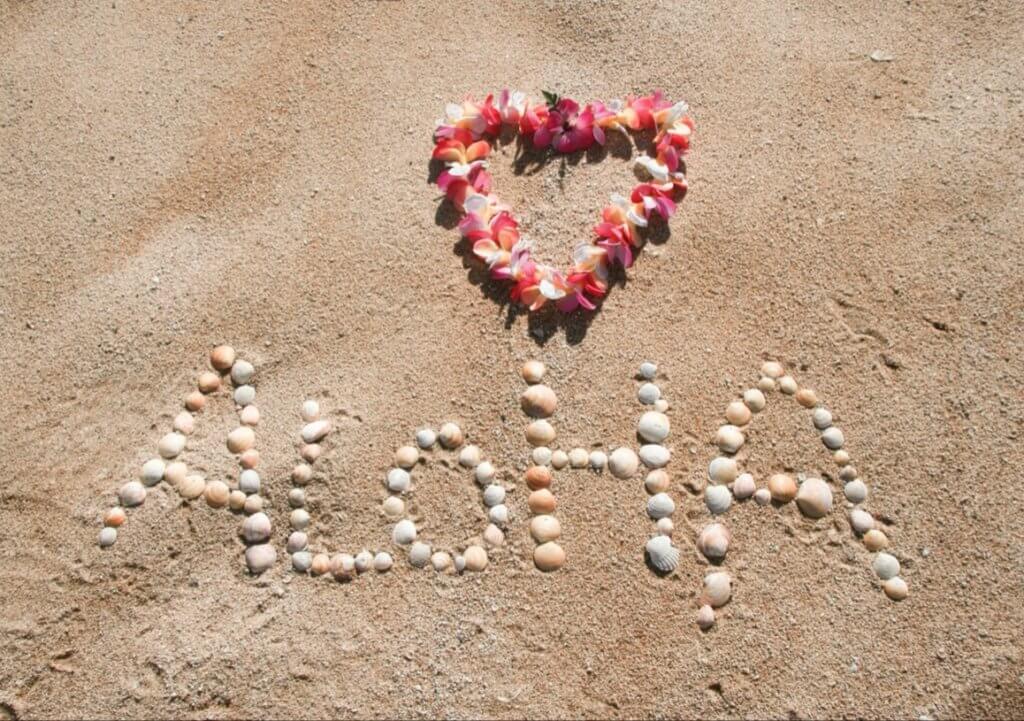
5. Pono: Living the truth, even in uncomfortable situations
Pono means kindness and sincerity. It reminds us to do what's right, even when it's not easy. These could be moments when you are actually under time pressure. Like when you find an injured cat on the side of the road and rush to the animal's aid, even if it's inconvenient at the moment because you might be missing an important appointment. At this moment, Pono does not mean to pass apathetically past an injured creature, but rather to provide help. It means being kind, even in uncomfortable moments.
6. Ike: Awareness of your consciousness
The world is the way you are
Almost everything we see and perceive is based on our own individual experiences. Our perception is therefore a personal, individual filter. Everyone sees the world based on their personal experiences and impressions. This consciousness, which every human being possesses, ultimately constructs reality. Therefore, a situation can be perceived very differently by different people. The world is therefore not as it is, but as you are. Because energy always follows attention. Ike reminds us what filter we have created and chosen and whether we are not willing to change it and clean our own "glasses" of perception.
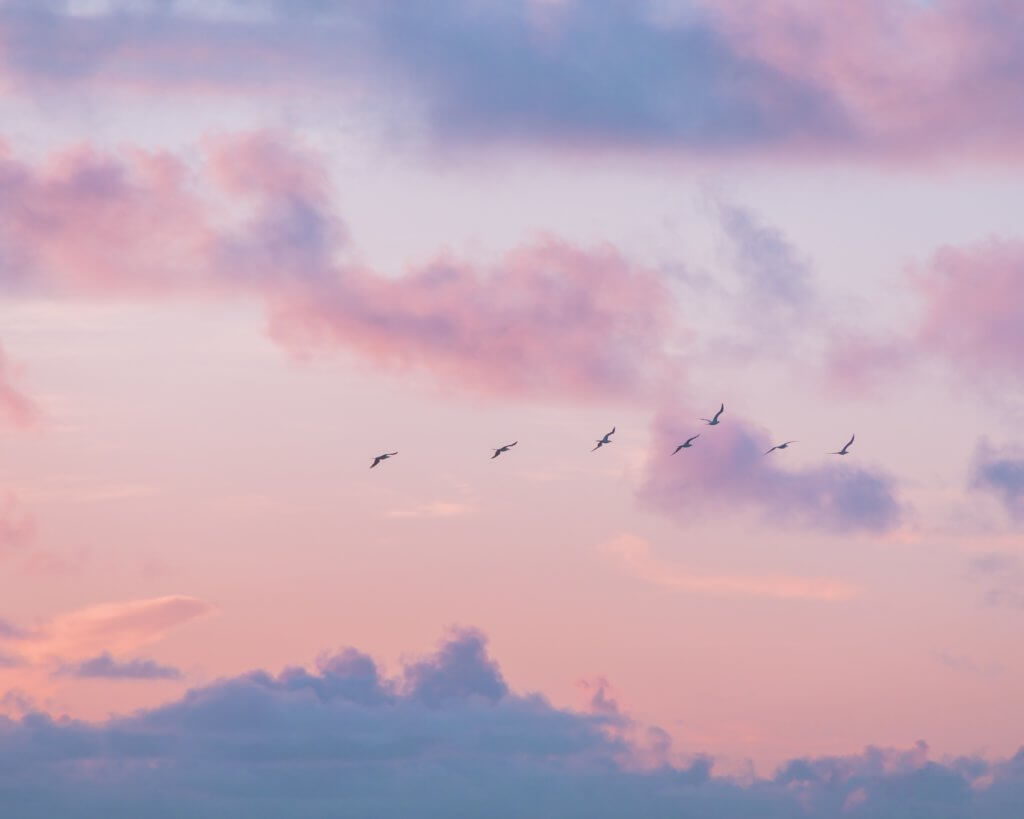
7. Kala: Boundlessness & Freedom
There are no borders! We are all interconnected: with all humans, with all animals, with all living beings, with nature, with the entire universe, we are connected on a quantum level. Kala reminds us not to look at each other separately. We are all created from the same energy but exist at different frequencies and vibrations. Kala means that every living being has the freedom to transcend itself. Because the only limits that exist are those that we set for ourselves.
You can be honest with yourself. If there are no limits, what would you like to do? how about you Where do you see yourself when I ask you these questions now? Which voices appear in your thoughts? And what are they telling you? They'll probably give you tons of reasons why you can't just go out and pursue your dreams. Are they real reasons or excuses? Kala asks us to be honest with ourselves and not let fear guide us.
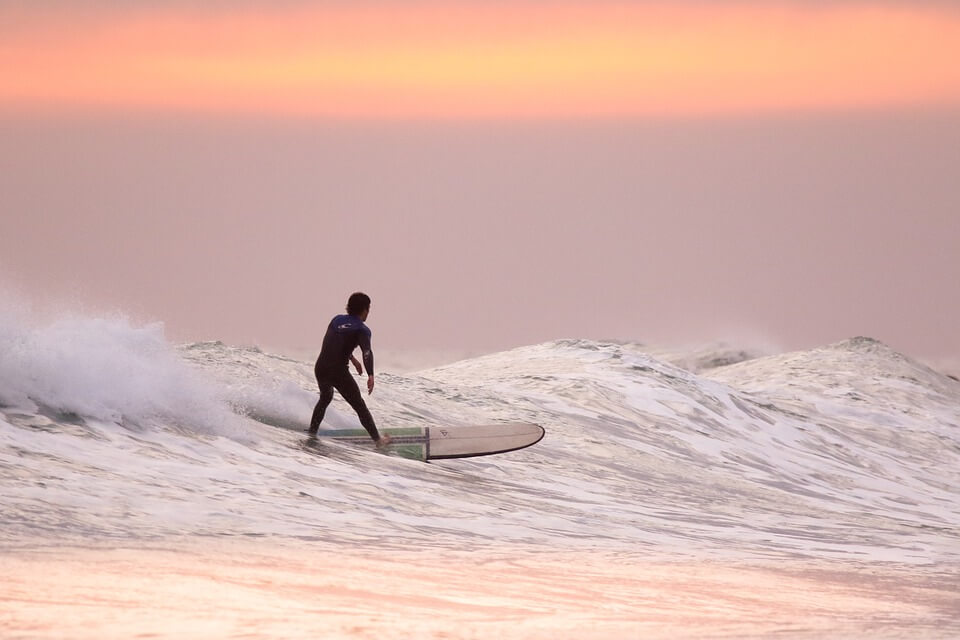
Have you ever heard of Huna and the 7 spiritual principles? Which principle appeals to you personally and why? Or have you noticed similarities to other spiritual principles? Write it to me in the comments. I look forward to it!
Digital Message in a Bottle – The free newsletter from Petit Chapeau
Carry yourself in ours now free newsletter and never miss an article again. In addition, you will receive exclusive travel tips, announcements and the latest news about honeymoons, adventure travel and mindset.
Lina
Related posts
15 Comments
Leave a Comment Cancel reply
Advertising
Free newsletter
Subscribe to our newsletter now and never miss an article again. In addition, you will receive exclusive travel tips, announcements and the latest news on the topics of personal development, spirituality and mindset.



These are really great principles, very inspiring <3
Thank you Helmut 🙂
I am not unfamiliar with these principles. The individual PR. I have often met them in a wide variety of contexts. Thank you for your information.
Hello Irmtraud,
very gladly!
Best regards,
Lina
I didn't know any of these principles and what impressed me the most was Pono's ability to help others even in uncomfortable situations 🙂
Ike the world is what you think it is. This awareness of your lymphatic awareness or your virtual reality is essential to a real awareness.
Living the principles mentioned opens the door to love in boundless freedom, free from fear and in all devotion, without conditions, without restrictions.
Fantastically beautiful dear Lina. You reminded me again that I want to go to Hawaii, now I realize why I am so drawn to it. The 7 principles remind me of the spiritual (hermetic) laws of Hermes Trismegistus. The beautiful thing about the spiritual principles is that they are valid no matter what culture is considered. There is nothing to do, they are and cannot be twisted or bent by people 🤩💝
Hello dear Alexandra,
thank you very much for your words. In fact, many parallels to the spiritual (hermetic) laws can be seen.
Thank you for this impulse.
Best regards,
Lina
Dear Lina, I have been a Huna teacher and shaman on the path of the Huna adventurer for 30 years. These principles shape my life. It's nice that you're so interested in it and writing about it. However, you mentioned many things that are not correct and therefore falsify the Huna teachings. These principles do not come from Max Freedom Long, he was a scientist who studied Hawaiian customs for a long time, but was never privy to or practiced anything himself. The 7 principles are by Serge Kahili King, see the Urban Shaman's bestseller, published since the 90's. He is initiated into Kahuna and teaches these principles (aloha international.org) from huna around the world. He was my teacher for many years. I myself give huna courses and organize spiritual trips to Hawaii. We can phone. Aloha nui loa ❤
Hello dear Melanie,
Thank you for the information and inspiration.
We would be very happy to exchange views on this, I would be very interested.
With many warm regards
Lina
Dear Melanie, I have just read your post and aroused my interest.
I would like to know more. I myself am from Switzerland and coach for children, young people and their families.
Can you give me tips on how to get more information and possibly training?
Thank you.
Natascha
Hi Melanie,
I am interested in a spiritual trip to Hawaii, could you send me more information about it?
Greetings Annette
Hello dear Lin,🌺
I'm also interested in spiritual journey to Hawaii, would like to prepare for it. Do you have material, Instagram?
would be very happy.
Greetings and Aloha Ute 🌺
Aloha dear Ute,
Thank you for your interest. Unfortunately, I don't have any special, up-to-date material at the moment.
Kind regards
Lina